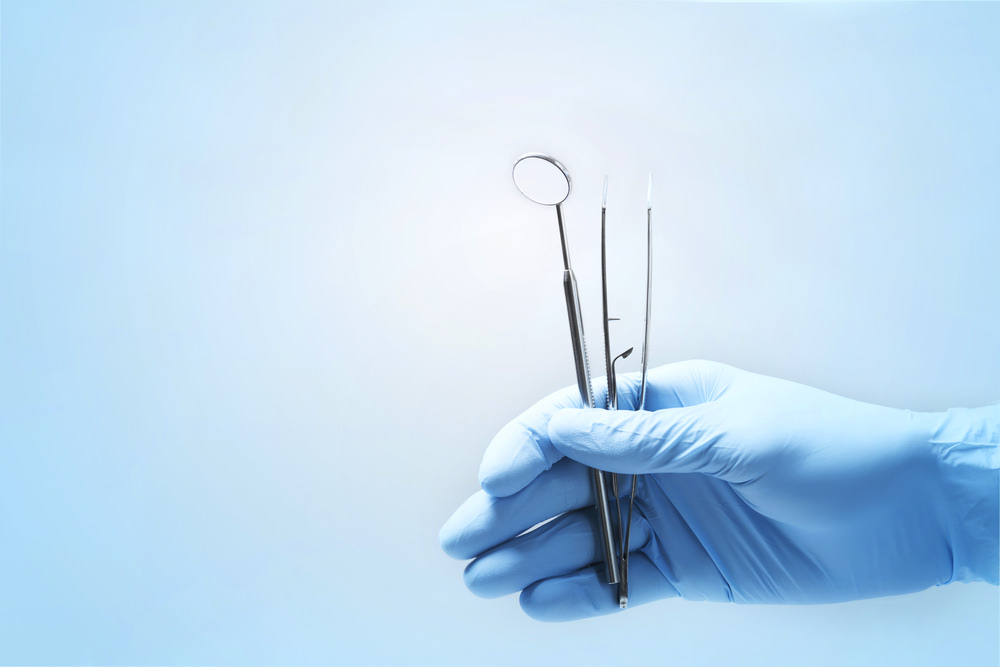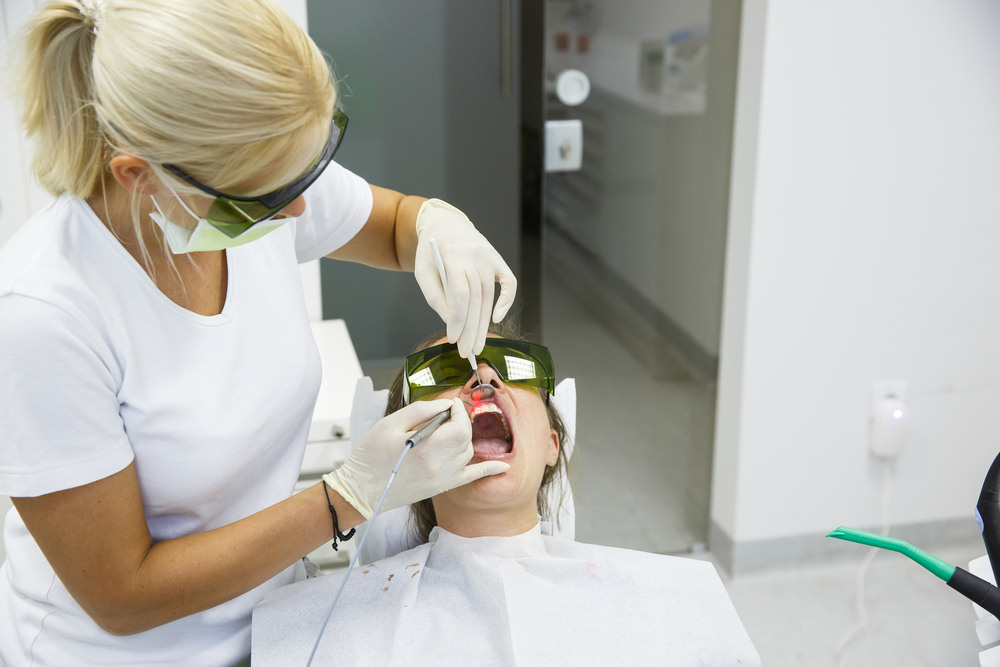Pain After a Dental Visit – What is Normal, What is Not?
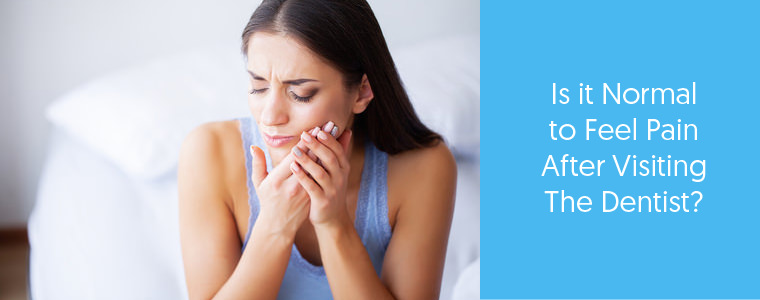
You and I both know that Dental visits can be an absolute pain in the mouth.
But if you’ve gone to see your Dentist and had some procedures performed, how do you know when to be concerned about any pain you are feeling, and how do you know when to just pop a Panadol and rest it off?
There are a few factors that affect the answer to this question – the procedures you had performed, the state of your teeth before the procedures, and whether you were in any pain then.
Your Dentist should have had this discussion with you in the clinic, so you knew what to expect afterwards.
But perhaps you were feeling too light-headed, too drowsy, maybe it was too much information to take in, or you were just in too much pain to listen!
Today I’ll discuss with you the what to expect after a Dental visit – the levels of pain you might feel, how to treat it, and when you should give your Dentist a call for some guidance.
When is Pain “Normal”?
This really is all on a case by case basis – it depends on the procedure, and the person.
However, I’ll give you some advice on what to expect, so you can know what level of pain is normal for your procedure, what is not, and what you should do about it.
If you’ve had any form dental procedure performed at all, expect to feel at least a small amount of discomfort and pain afterwards.
The tenderness you are going to feel may be simply because you’ve received an injection.
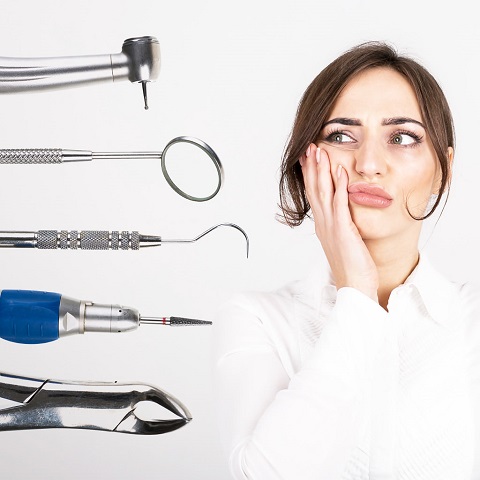
Any work performed in the mouth, even a cleaning treatment, is going make you more susceptible to pain.
This is because your mouth is a highly sensitive area – there are more nerves in your mouth than anywhere else in your body, and it’s not used to having someone hold it wide open, and poke around in there with tools!
Your Dentist should give you an aftercare plan following your procedure.
Make sure you follow their instructions, especially if they tell you to take a Panadol – this is your Dentist telling you to expect pain. This is usually after a surgery, extraction, or a root canal therapy.
After these procedures, you are going to need to have painkillers and allow your teeth time to settle down.
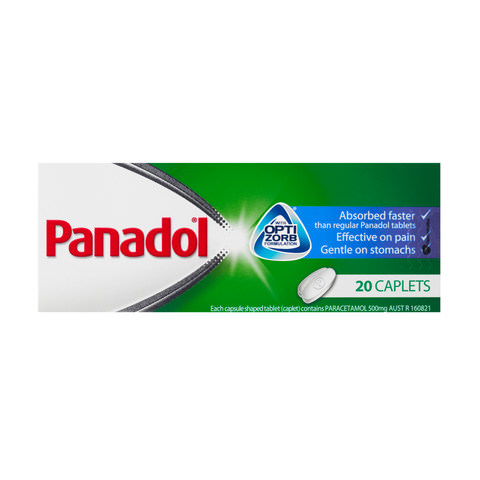
Panadol can help for low to mild Dental pain, but it’s always best to consult with your Dentist
If you’ve only had a filling done, it all depends on how deep the filling is. Your Dentist will advise you whether you are going to feel sensitivity, or any forms of pain.
Sometimes a Panadol may be necessary in your case, sometimes it may not – it depends on how deep the filling has gone, especially if it is close to your nerve.
If the filling has gone very close to your nerve, the nerve may become infected, and you may begin to feel excruciating pain.
Any cases of excruciating pain, or even anything that you are slightly unsure of, should be followed up by calling your Dentist and asking for advice.
Any mild sense of pain that you feel, anything can be classified as “normal”, can be treated yourself at home by taking a Panadol or Nurofen. An ice pack on the area that is hurting can also help.
However, if you begin to feel anything you think is out of the ordinary (look out for the symptoms listed below), call your Dentist and they will give you guidance, having known the procedure you had performed.
10 Symptoms you Should be Concerned about
Your Dentist should give you an aftercare plan, to help you avoid getting any possible complications from your procedure.
It’s very important that you follow every step of this plan.
If you happen to notice any of the following, you should also contact your Dentist immediately for their guidance.
#1 Excruciating or throbbing pain, bleeding, or swelling
Contact your Dentist to discuss these symptoms immediately, as these are signs of a possible infection or fractured tooth.
#2 Nausea
This may be a reaction to the local anaesthetics your Dentist used to numb the pain, most likely before performing an extraction or fixing dentures. It’s normal for the feeling of nausea to last up to 5 days.
If you’re still feeling unwell after 5 days, it’s time to call your Dentist – you may even find that the back part of your dentures requires reshaping.
#3 Earaches or other Facial Pain
Having your mouth open during a dental treatment can cause earaches, leave you hearing that hideous ringing noise, or even like your ear is clogged and you can’t get it clean.
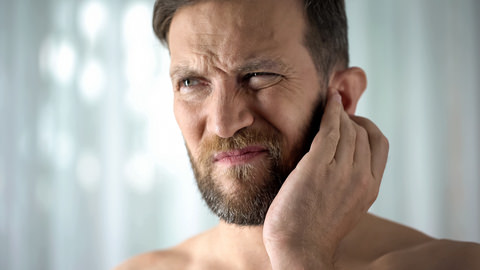
If you experience an earache after a Dental visit, best practice is to contact your Dentist ASAP.
The pain may also affect your eye or other areas of your face.
By this stage, you will probably be having trouble sleeping. These can be signs of an infection, or that your teeth are misaligned.
Speak to your Dentist ASAP to find your answer as to why?
#4 Experiencing Pressure
A white (composite) filling may cause you more irritation than a silver (amalgam) filling.
The dental glue and UV treatment that is used when placing and hardening the white fillings on your teeth makes the composite material shrink, causing a feeling of pressure. This can lead to tooth sensitivity when you bite.
Within a few weeks this issue should have resolved itself, but if you’re still feeling high levels of discomfort, especially pressure and throbbing, contact your Dentist.
#5 Increasing Levels of Pain
Your pain should decrease over the days following surgery.
If you find the pain suddenly increasing after several days, you may have what is known as a “dry socket” and must contact your Dentist immediately.

Dry socket is bone pain that occurs when you have lost the protective blood clot that should have formed after tooth extraction – it has dissolved or dislodged itself from your tooth.
As such, your wound has not had time to heal properly, and your underlying bone and nerves are left exposed to air, foods, and liquids, all of which can cause excruciating pain.
You may also get bad breath or an unpleasant taste in your mouth, a headache or a fever. Your Dentist may use a simple paste to relieve your pain and protect the exposed area, allowing it to heal, or you may need a dressing on the extraction site.
You may also need antibiotics and painkillers to help you through the pain. Always speak to your Dentist or Doctor first.
#6 Jaw Muscle Fatigue
A very common reason for being in pain after visiting your Dentist is from keeping your mouth widen open for so long. It can result in a sore jaw, stiffness, and tired, shaking muscles.
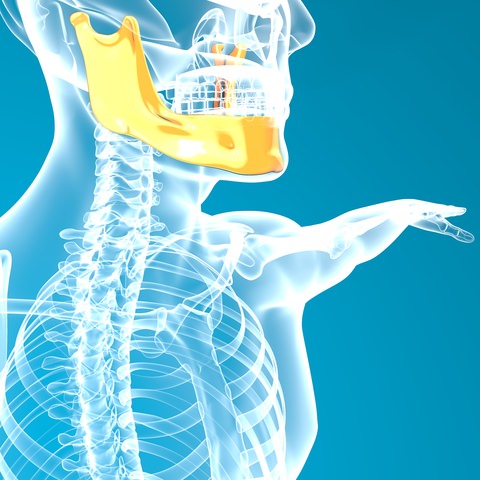
You may experience pain in and around your Jawbone. If it increases, best to speak to your Dentist
A slightly sore jaw is normal after any dental procedure, and that’s when you pop a Panadol and sleep it off.
For longer procedures, like root canals, this pain may last several days.
However, if the pain is severe – for example, if the Panadol isn’t doing anything to help relieve you – contact your Dentist. They will probably recommend an ice pack and give you exercises to relieve the pain.
#7 Trismus
If you feel as though your jaw is locked in place, that you cannot open and close your mouth easily, you may have “trismus” (sometimes called lockjaw).
Trismus is a spasm of your jaw muscles that causes your mouth to remain tightly shut. It may occur as a result of an injection, especially on your lower teeth, or from jaw strain (from keeping your mouth open for such an extended period).
Generally, trismus lasts from 2 – 3 weeks, but I recommended you contact your Dentist for advice – they will probably offer you the same treatments as muscle fatigue but may also recommend changes to your diet and muscle relaxants if your case is serious.
#8 Sore Throat
Also caused by having your mouth open for so long during your procedure, dehydration can cause a sore throat.
Try drinking lots of water afterwards, or even coconut water, and avoid flavoured water and soft drinks.
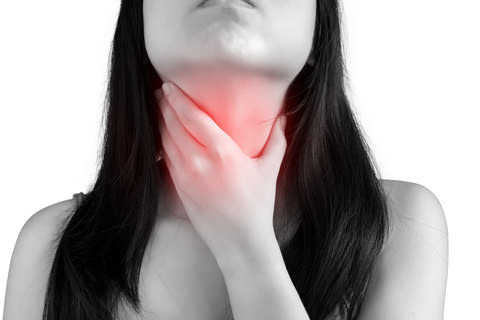
If you experience a sore throat, try drinking water to hydrate yourself.
If this doesn’t help, and your throat is severely sore after a few days, you may have an infection, or be having a reaction to the local anaesthetic. Once again, contact your Dentist for guidance.
#9 Soft Tissue Pain
There is a chance you can cause trauma to your tongue during or after a dental procedure, leading to soft tissue pain.
This is why it is very important to listen to your Dentist about when and what you can eat after your treatment if you have had a lot of anaesthetic – eating food that requires a lot of chewing tends to be discouraged as there is a high chance you could bite your tongue, as is avoiding hot drinks as you may burn your tongue.
There is also a possibility you may have accidentally bit your tongue during your procedure.
If you begin to feel any throbbing pain, sensitivity when chewing food, and sensitivity to hot temperatures, contact your Dentist as there is a chance you could have an infection, which they will treat with an antibiotic.
#10 Swelling
Slight swelling immediately after your dental procedure is normal – your body will send extra blood to the injured area to help speed up the healing process.
Using an icepack for 2 days after treatment will help reduce swelling.
However, if it does not get better, or continuously gets worse after 3 days, contact your Dentist – there is a high chance you may have an infection.
Conclusion
Remember – “normal” is that there is always going to be at least a slight amount of pain after any dental procedure.
Try to avoid any complications by ensuring that you stick to your aftercare routine set by your Dentist, and gong to your regular check-ups and maintenance – this is all restorative care for your teeth!
Whatever you do, don’t avoid the Dentist because you’re scared of the pain – the longer you stay away, the more likely it is that you are going to need more painful and expensive treatments in the future!
Is the fear of the dentist that is keeping you away? See our article “How to Reduce Panic Attacks at the Dentist”, and fear no more!
By Dr. V
Created at October 11, 2019, Updated at January 25, 2025


